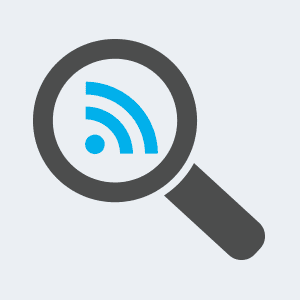There are no products to show
Use the search and filter options in the menu to find products



Use the search and filter options in the menu to find products
| Provider | User Rating | Phone Number |
|---|---|---|

|
|
(858) 947-7560 |

|
|
(858) 947-7563 |

|
|
(205) 946-1154 |
HouseholdsIn Dublin (Bladen County), NC, the aggregate number of households is 17,639 |
Median IncomeHouseholds in the city of Dublin (Bladen County), NC have a median income of $33,036. |
PopulationThe total population in the city of Dublin (Bladen County), NC is 32,940 |
DSL TechnologyApproximately 86.5% of consumers in the city of Dublin (Bladen County), NC have access to DSL internet |
Fiber TechnologyApproximately 21% of consumers in the city of Dublin (Bladen County), NC have access to fiber-optic internet. |
Cable TechnologyApproximately 56.25% of consumers in the city of Dublin (Bladen County), NC have access to cable internet. |
Wireless TechnologyApproximately 99.96% of consumers in the city of Dublin (Bladen County), NC have access to mobile broadband internet. |
Average upload speedFor residents in the city of Dublin, NC, the city-wide average upload speed is 5 Mbps |
Average download speedFor residents in the city of Dublin, NC, the city-wide average download speed is 9 Mbps. |

When choosing new Internet service, it's important to understand the advantages and disadvantages of DSL, satellite, and cable internet connections in Dublin, NC, and how they work.
In today's world, internet users have a wide variety of high-speed internet services to choose. Some of the most popular internet services available are cable Internet, fiber optic internet, DSL, and satellite internet. The market has become extremely competitive with all of these options available. With this fierce competition raging on, prices are going down, streaming speeds are increasing, and there is usually a wide variety of internet package deals available to choose. Most package deals include your internet, phone, and TV services at a discounted rate.
Services such as MyRatePlan allows customers to find the greatest deals on high-speed Internet in the greater Dublin, NC area. When you choose MyRatePlan, we make sure to get you the best provider and internet service which are compatible with your current phone and TV service. All you need to do is enter your ZIP code into the search bar at the top of the page.
If you're after an internet service provider for your business, MyRatePlan has a separate service page for those plans. If you're unsure of your current bandwidth usage, MyRatePlan has an internet speed test available, which is compatible across all platforms and doesn't require any flash players or JavaScript to run.

Many cable companies offer cable Internet service, and these companies might also offer television and telephone services in Dublin, NC. The cable Internet service is made possible by physical fiber-optic or coaxial cables, and for this service to work, there must be a physical connection between the provider and consumer. The high-speed Internet service is delivered through a cable modem, and it uses the bandwidth from the TV channels to connect subscribers to the Internet. To find top cable Internet providers near your location, you can use MyRatePlan's broadband comparison tool.
Internet service doesn't use a huge amount of bandwidth, so it's easily combined with television service. A large percentage of the cable companies in Dublin, NC allow consumers to bundle different services. For example, they might offer a cheaper price on a bundle that includes telephone, Internet and TV services. Since all of these services use the same physical lines, they can be easily added to an existing service plan. One of the major advantages of cable Internet service is the lack of signal degradation. In other words, the quality of the Internet connection isn't affected by the subscriber's distance away from the service provider.
The cable Internet in Dublin, NC is especially convenient for people who don't want to share their connection with others. The only downside of cable Internet is that the connection speed can be reduced by other cable subscribers in the area, so if you live within a large concentration of cable subscribers, you might not get the best connection. Since all the cable users in any given area must share the same bandwidth, the activities of one user affects the connection of other users. Before deciding on a particular service, it's important to know that bundling services isn't always cheaper. In fact, you might be able to save money by purchasing the services separately. To make sure you're getting the right price, you can use the tools offered by MyRatePlan.

What is all the talk about fiber optic Internet about? Fiber optic Internet services, often referred to as “FiOS,” use fiber optic cables to transmit data using light, instead of electricity. On the cutting edge of digital technological advances, fiber optic cables can transmit data at speeds approaching the speed of light with minimal signal loss or weakening across large distances. However, this does not mean that your actual download speeds will approach futuristic light speed levels. Fiber optic cables only ensure strong and reliable connections between traditional electric hubs, and your internet service will likely still be limited by electronic hardware such as your router or Internet service provider. Fiber optic networks are often seen as the most “future proof” internet connection and may provide superior download speeds and ultra-low latency in certain areas of Dublin, NC.

A digital subscriber line (DSL) is different from cable Internet in that it utilizes the phone line to create an Internet connection rather than a cable line. A telephone line has extra bandwidth that isn't needed to make telephone calls, and it is this extra bandwidth that is used by the DSL connection to provide high-speed Internet to the home, apartment, or other residence. Similar to cable Internet, DSL requires a user to connect to the Internet via a modem.
Even though a DSL customer must use the phone line to access the Internet, it's possible to make telephone calls and access the Internet simultaneously. One of the interesting features of DSL is that it's not a shared line like a cable Internet line, which means a customer may enjoy a more consistent speed than with cable Internet, even if the top available speed is lower than local Dublin, NC cable Internet options.
DSL works best when the home receiving Internet service is reasonably close to the service provider's local office. Therefore, if a home or apartment isn't close to the Dublin, NC DSL service provider's office, cable Internet or another high-speed Internet option may offer a better experience and higher maximum speed. In addition, anyone who doesn't have a landline and relies on their cell phone for calling will need to set up home telephone service to use DSL.

Another type of Internet service provider in Dublin, NC is satellite Internet, which provides access through a satellite dish. Customers using satellite Internet connect a home modem to the dish. An orbiting satellite sends frequencies received by the dish, which transmits them to the modem. This transmission of frequencies allows a local customer to have an Internet connection.
In Dublin, NC, satellite Internet is not a highly-used option. On the other hand, in rural and remote areas, satellite can be an essential option for an Internet connection. Cable and telephone companies may not provide traditional service to these areas. If cable or DSL services are available at all, the distance from the providers' offices may mean insufficient or low-quality connections. Customers subscribing to satellite Internet will need to install a satellite dish that faces the equator. If you already have a satellite dish or are in a rural or remote area, satellite Internet could be an excellent choice. MyRatePlan can point out the satellite services available in the area.